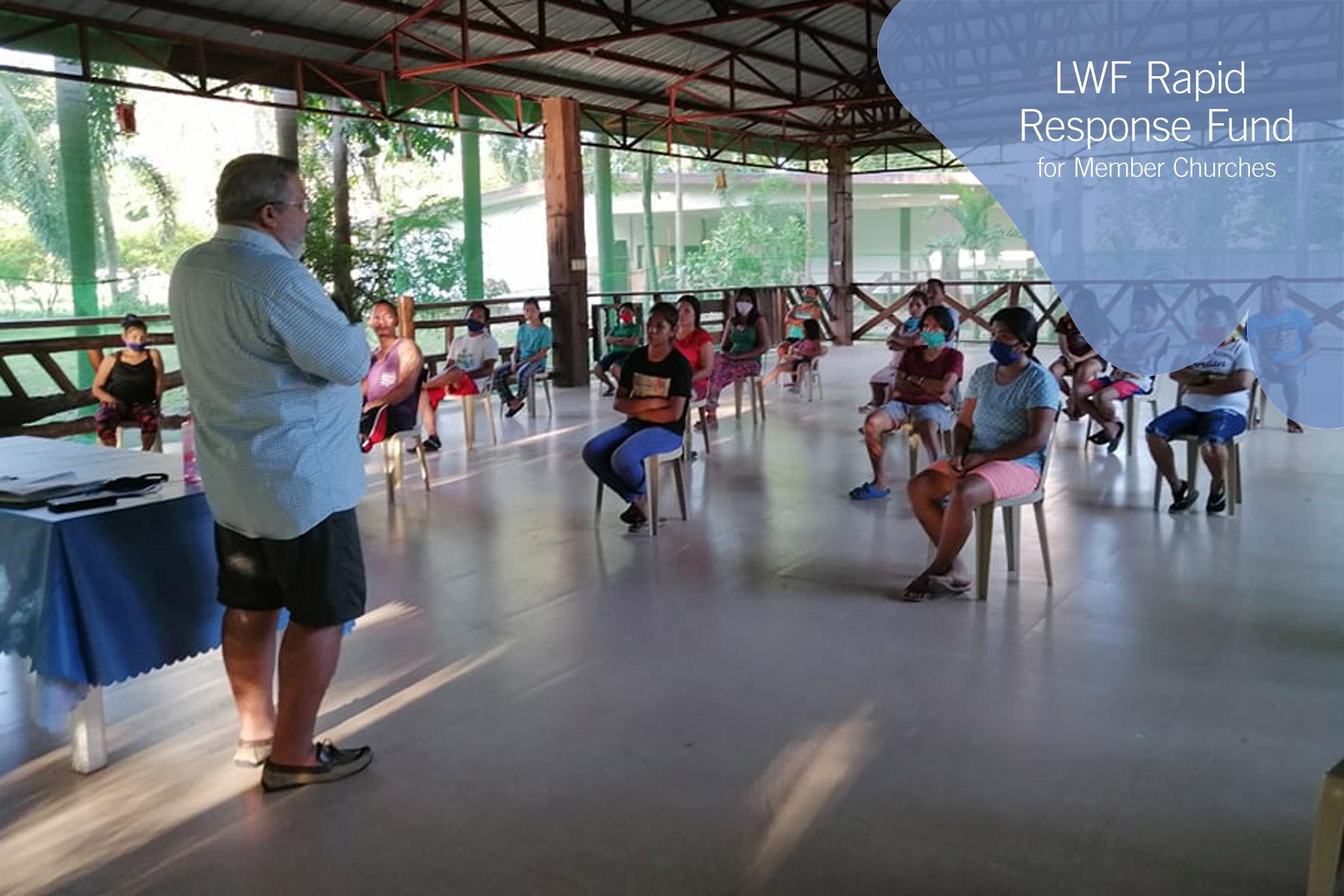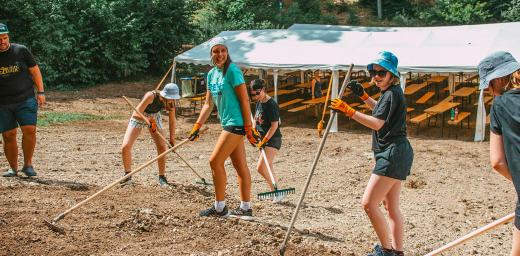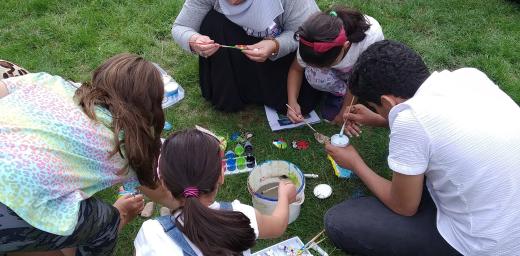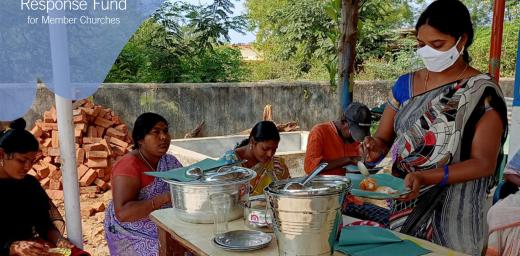Being the church in times of COVID-19

The Lutheran Center in Tiaong, Quezon Province, a Lutheran Church in the Philippines ministry, gathers in April with social distancing. Photo: LCP
In LWF survey member churches report impact of Coronavirus
(LWI) - The Coronavirus pandemic (COVID-19) has posed significant challenges for the member churches of the Lutheran World Federation (LWF). A survey in all seven regions revealed impact in the same areas, but with largely different consequences regionally.
The survey sent out in early June 2020 yielded responses from 76 of the 148 LWF member churches. Churches responded from every region, giving a first impression of the impact of the pandemic on churches worldwide.
“As the COVID-19 pandemic impacts our member churches, it impacts the global communion of churches,” says Maryssa Camaddo, LWF director of the Department for Planning and Coordination. “Where one member suffers, all suffer. By learning what our members are struggling with and what is on their mind, we can also plan how to better accompany each other.”
Ups and downs of digital church
All churches had to temporarily suspend their activities, and find new ways of reaching out to congregations, and the most vulnerable. In many cases, churches expanded existing worship to online networks or established new services online using different forms of social media, websites, TV and radio. Several churches reported the positive effects of ‘going online’ as an opportunity for creativity and the ability to reach audiences outside of the usual physical gatherings.
Others reported a lack of internet connectivity, electricity, online services and smartphones created a disconnect from their congregations. Church members in some regions were unable to afford internet or mobile phone service because money was now needed for food. With mandated physical distancing, clergy found it challenging to remain in contact with the elderly and people living in remote and rural areas.
The economic impact in many places already is changing the face of the church and the congregations. As church members struggle financially, churches often increased their diaconal work. In addition to traditional, ongoing diaconal ministries, churches provided protective material, sanitization and general education, and medical aid with the onslaught of COVID-19. In a number of countries, churches needed to counter a lack of reliable public and government information.
As church members are impacted heavily by loss of livelihood, churches also face financial instability. The pandemic “highlighted and heightened existing inequalities and injustices among church members, among congregations and among churches worldwide,” says Julia Brümmer, LWF Planning, Monitoring, Evaluation and Reporting Coordinator, who conducted the survey.
The crisis invites – and in fact: obliges – the churches to rethink and prioritize their ministries.
The struggle for survival is not exclusive. “In many churches across all regions, the pandemic has launched or accelerated a vicious circle, in which church members in need turn to the church for support, but contribute less,” says Brümmer. “The crisis invites – and in fact: obliges – the churches to rethink and prioritize their ministries.”
Solidarity
While many answers reflected on the immediate stress and uncertainty churches face, some cautioned becoming too absorbed in immediate and contextual challenges. Many recognized a stronger calling for the church to be a public voice for justice, and advocate for human rights, gender justice, and raise awareness about climate change.
As churches have already shown solidarity in the LWF communion, by contributing to the Rapid Response Fund for churches in need, or bilaterally supporting partner churches, this solidarity could become even more important in the future.
“Apart from supporting churches in their current struggles, one role of LWF could therefore be to safeguard and remind churches of the broader perspective, including the concept of solidarity and their belonging to a worldwide Communion of Churches,” Brümmer concludes.
The Rapid Response Fund, launched in April, supports many of the communion’s member churches that are particularly vulnerable during the global health emergency. Upon approval of a project application, a church can receive a grant of up to EUR 5,000 from the global fund supported by LWF’s member church partners around the world.





